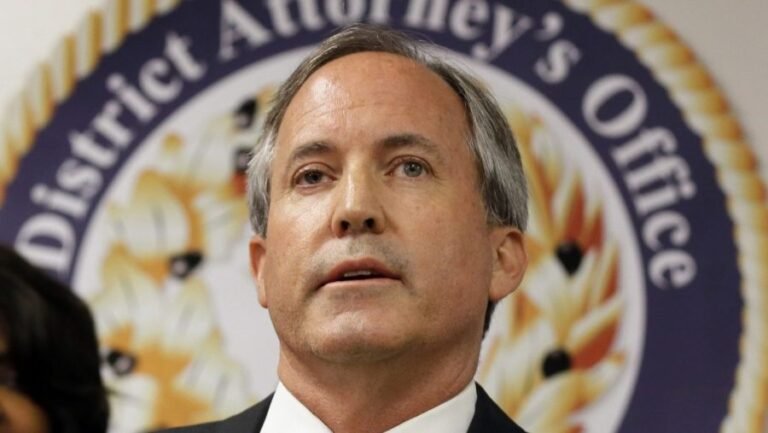
Unconditional American support for Israel — once the bedrock of conservative foreign policy — is crumbling in real time.
From Congress to right-wing media and Trump-aligned grassroots organizations, a new tone is taking shape towards Israel: one of skepticism, impatience and in some cases outright hostility. The Republican Party’s old covenant with Israel is no longer sacred — and the cracks are widening fast.
In the mid-20th century, Republicans were generally skeptical of Israel, instead favoring Arab ties. Support grew later, driven by Cold War strategy, evangelical Zionism, neoconservatism and post-9/11 alliances — ultimately transforming the GOP into Israel’s most loyal political partner.
But that alliance is now eroding at a stunning pace. If Israel hopes to preserve its standing, it must act swiftly to reassert its dependability as a strategic ally — or risk forfeiting support not only from the American left, but from its most reliable partners on the right.
Nowhere is the fracture more evident than in President Trump’s second term. In April, his administration slapped Israel with a 17 percent reciprocal tariff. Israeli officials were “in complete shock” after having abolished tariffs on U.S. imports in hopes of an exemption. This signaled that Trump would not give Prime Minister Benjamin Netanyahu everything he wanted — friendship doesn’t mean favoritism.
That message grew louder during the 12-day war between Israel and Iran. Trump brokered a fragile ceasefire that Israel broke within hours. On June 24, Trump erupted in fury. “They don’t know what the f— they’re doing,” he snapped. “I’m not happy with Israel … you don’t go out in the first hour and just drop everything you have on them.”
And it wasn’t an isolated outburst. Two months earlier, Netanyahu had pleaded with Trump to take a hard line with Turkish President Recep Tayyip Erdogan, whose military was planning on operating a military base in Syria, but the Israeli Air Force struck the base three days before the meeting in the White House.
Trump refused. “If you have a problem with Turkey, I think we’ll be able to work it out … as long as you are reasonable,” he told Netanyahu in the Oval Office in front of the press. In effect, Trump told Netanyahu to sit down and compromise with a regional adversary.
Then came Damascus. As sectarian violence between Druze and Bedouin communities engulfed Syria’s Suwayda province, Israel launched airstrikes on government positions in the capital, ostensibly in support of the Druze. The strikes risked a wider regional war and drew immediate outrage from the White House.
Trump personally phoned Netanyahu and demanded restraint, furious that Israel had acted without coordination and against his express wishes. White House Press Secretary Karoline Leavitt said Trump was “caught off guard” and unhappy with the airstrikes. It was the clearest signal yet that Trump’s strategic patience with Netanyahu was gone and his instinct now was to rein Israel in.
Influential conservatives are questioning U.S. support for Israel. Tucker Carlson, once staunchly pro-Israel, now voices deep skepticism. Carlson recently suggested that Jeffrey Epstein worked for Mossad, the Israeli intelligence agency, and argued that Americans serving in Israel’s army should lose citizenship.
Shifting Republican attitudes on Israel are increasingly visible in Congress. Rep. Marjorie Taylor Greene (R-Ga.) stunned colleagues this month by proposing an amendment to eliminate upwards of $500 million in U.S. military aid for Israel’s missile defense. Greene cited Israel’s recent bombing of Gaza’s only Catholic church and railed against funding “nuclear-armed Israel’s missile defense system” while Americans face domestic needs. Rep. Thomas Massie (R-Ky.) was the only GOP House member who voted with her, along with four Democrats.
Sen. Lindsey Graham (R-S.C.), perhaps Congress’s most ardent pro-Israel voice, recently blasted violent attacks by Jewish settlers on Christians. “There was a Catholic church burned in the West Bank,” Graham said angrily on Fox News, referring to a church compound torched by extremist Israeli settlers. “What’s happening in the West Bank bothers the hell out of me,” he added, demanding that Netanyahu punish those responsible. When a stalwart like Graham is “incredibly upset” by Israeli settler violence, it’s clear that the old consensus is cracking.
Former Rep. Matt Gaetz (R-Fla.) recently delivered a blistering segment on One America News condemning Israeli settlers in the West Bank — rhetoric rarely heard on right-wing TV. “The truth is, this isn’t an isolated tragedy. It’s part of a pattern of Israeli settler attacks on Palestinian communities … torching of homes, farms and lives,” he said, adding they’re “protected by Israeli forces who are funded by U.S. tax dollars.” Citing the killing of Saif Musallet, a Palestinian American, in the West Bank, Gaetz noted that “Israel rarely holds these killers accountable.”
Even Fox News is shifting. The network aired a surprising interview by Bret Baier with Iran’s foreign minister, Abbas Araghchi. Such a platform for Israel’s archenemy would have been unthinkable just a few years ago. The move reflects growing discomfort among right-wing audiences with one-sided pro-Israel narratives and a desire for an “America First” approach.
Polling confirms that conservative ardor for Israel is fading. A recent Quinnipiac poll found Republican sympathy for Israel had dropped to 64 percent, down from 78 percent a year earlier. Pollsters tied the decline to Israel’s ongoing offensive in Gaza. Overall, more Americans now hold an unfavorable view of Israel’s government than before the Gaza war began.
The message to Israel from the American right is now unmistakable: Support is no longer unconditional. To preserve its standing, Israel must act as a responsible, stable and strategically aligned partner. That means wrapping up the war in Gaza quickly, reining in extremist settlers in the West Bank and credibly demonstrating respect for civilian life and the long-term viability of regional stability.
The era of automatic American backing for Israel is ending. If Israeli leaders fail to adapt, they risk losing even their most loyal conservative allies.
Abdullah Hayek is a Middle East History and Peace Fellow with Young Voices and an independent Middle East analyst and consultant based in Washington, D.C.


